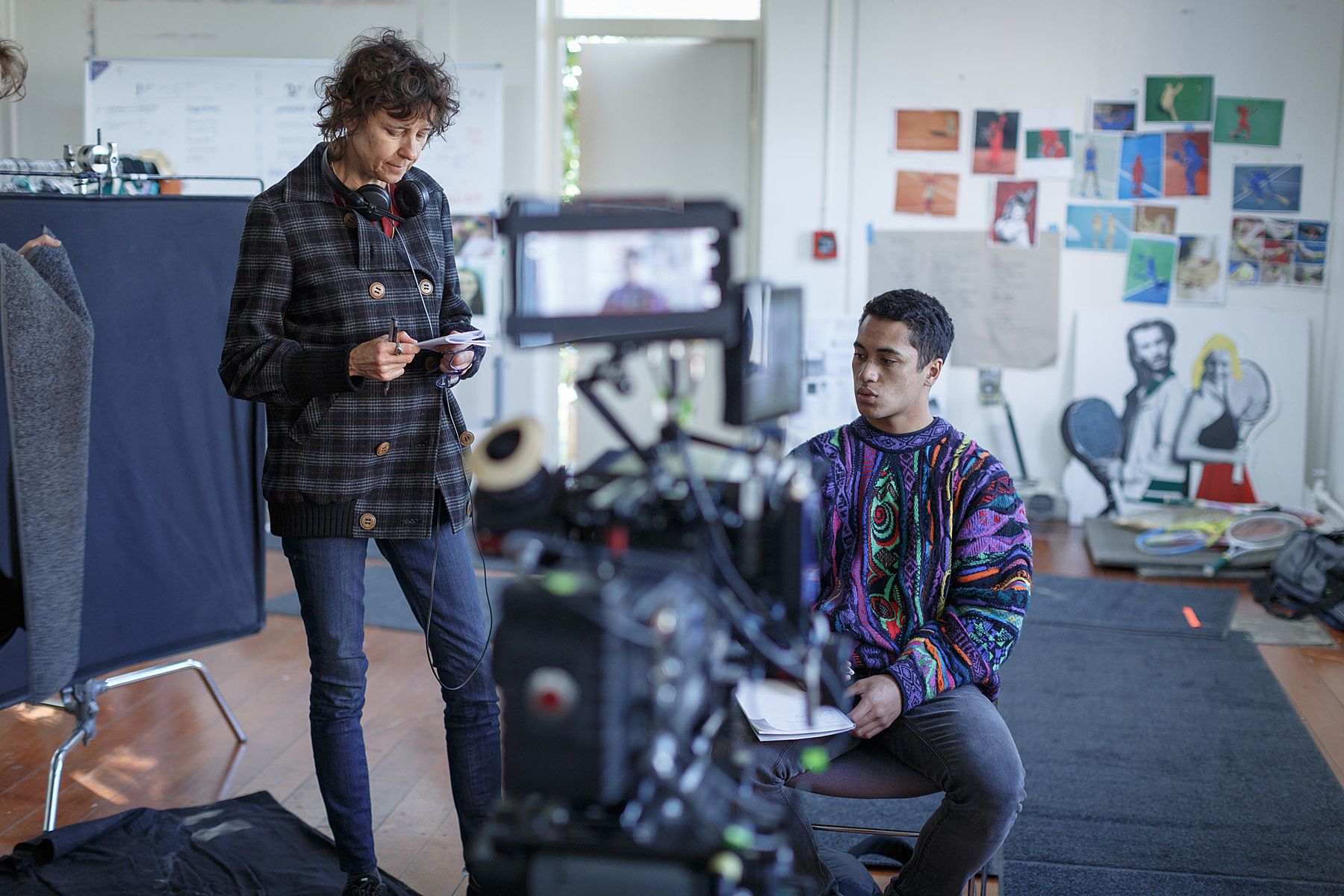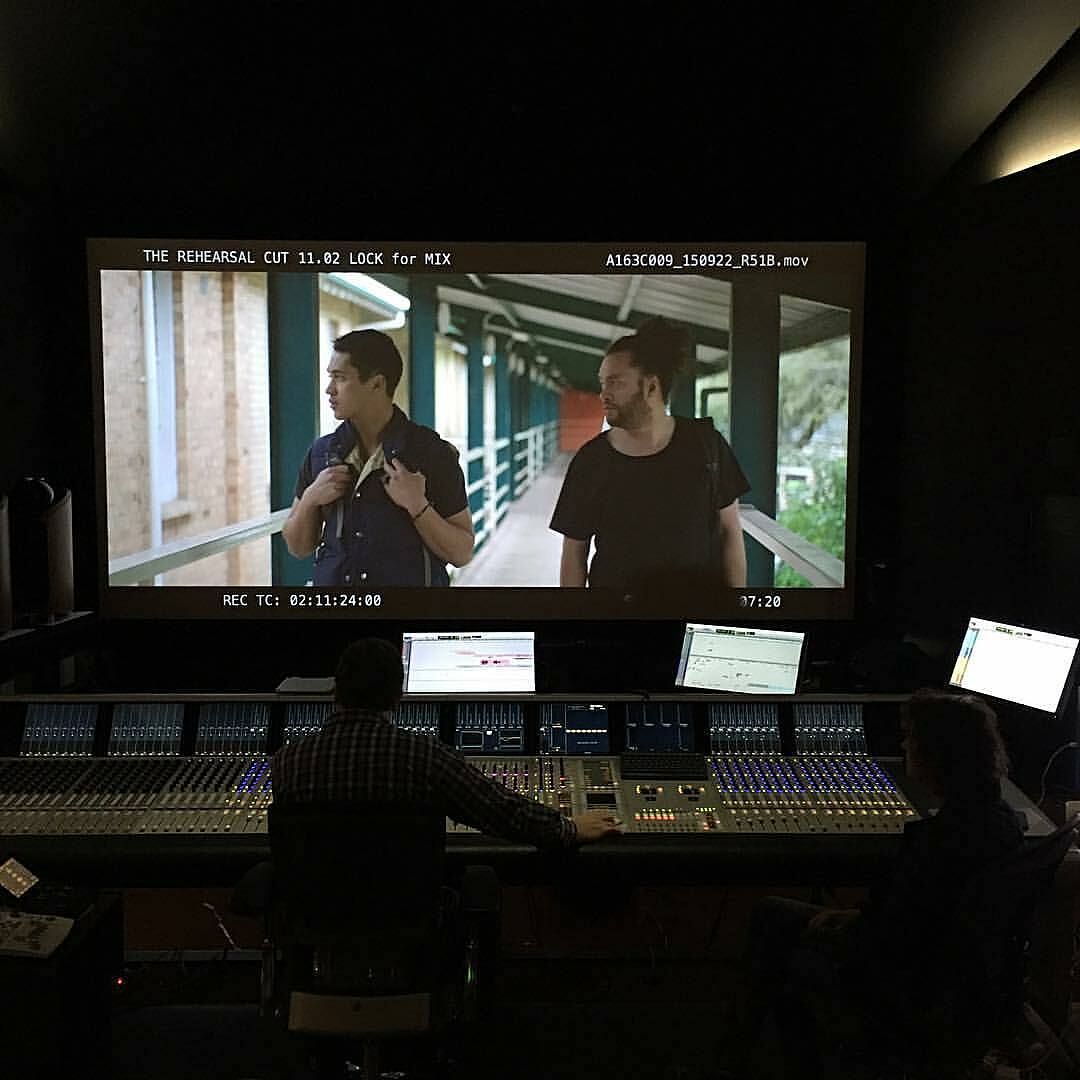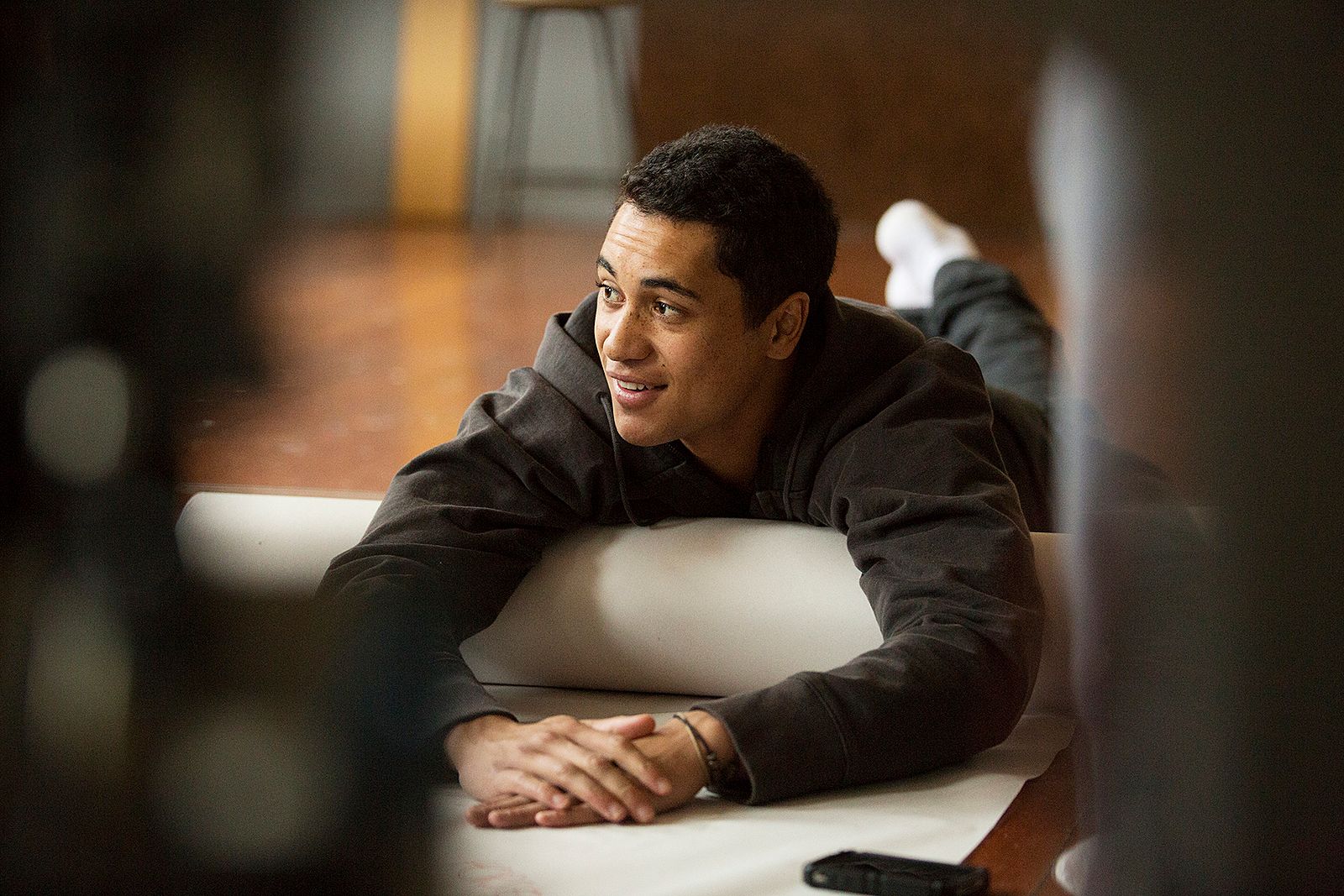On adapting the unadaptable: a chat with Alison Maclean
Brannavan Gnanalingam speaks with director Alison Maclean about adapting difficult novels and on how her first and latest films deliver two very different visions of New Zealand.
Brannavan Gnanalingam speaks with director Alison Maclean about adapting difficult novels and on how her first and latest films deliver two very different visions of New Zealand.
When she left New Zealand in the ‘90s, Kiwi-Canadian filmmaker Alison Maclean had the world at her feet: her singular debut Crush (1992) was one of only a handful of New Zealand films to have ever screened in Competition at Cannes, and her second feature, shot in the States, was a critically-acclaimed adaptation of cult American author Denis Johnson’s short story collection Jesus’ Son (1999). Yet despite continuing to carve a name for herself in television since (including Sex and the City, Carnivàle, The L Word, and The Tudors), her feature film career stalled.
“Trying to make a film that’s in any way idiosyncratic,” Maclean comments, “and that isn’t a straight genre film and doesn’t have big movie stars – you’re disadvantaged. I think as a woman director as well, there are all sorts of obstacles.” Between Jesus’ Son and her latest feature, an adaptation of the Eleanor Catton’s brilliant debut novel, The Rehearsal, seventeen years have passed. “Just to hear you say that makes my heart sink,” Maclean laughs.
Her interest in Catton’s work was piqued well before the success of her Booker Prize-winning second novel The Luminaries. “It was actually a writer friend of mine in New York who was up for a prize with Eleanor, and he read the book and said, ‘Oh you have to read this, it’s so up your alley.” It didn’t take long for her to get through it. She loved how audacious and bold it was. She loved the humour. “It’s a very singular kind of book. I liked that it was about young people and New Zealand and I’d been looking for something to do back here and I was really drawn to a lot of the themes in the book.” It was a quick decision, she says, knowing she wanted to make it into a film.
Like the winding, chaotic Jesus’ Son, The Rehearsal presented a challenge in adaptation: it’s spatially ambiguous, with reality seeping seamlessly into performance. It features multiple voices. Maclean and co-writer Emily Perkins, while simplifying Catton’s narrative, adopted her unsettling tone. “There was this nice thing in the book, which I was inspired by, and Emily and I talked about a lot: there’s a lot of ambiguity about what is performed and what is real. Finding a way to do that in the film was quite interesting. Film is very concrete. You have to approach it in a different way. We tried to keep that sense, so there’s some ambiguity about what is actually happening and what you see.”
While ambiguity could create a slippery sense of a shared vision, Macleans and Perkins found they worked together well: “We had quite complementary skills. [Perkins] is so good with character and psychology, and had all of this amazing experience: she’s a teacher, she went to drama school, she’s a Mum, all of these things that fit into it. But at the same time, because I’ve been writing screenplays for twenty years, and she hadn’t done much of that at all, we were coming at it from quite different angles. We pretty much had the same film in our head.” They also had free reign in the adaptation process. “Eleanor was brilliant in that she understands what a different medium film is. She was very hands off and gave us her blessing and said, ‘get on with it’.” (While she wasn’t involved in the writing process, Catton does have a cameo – equally as fitting to the themes of her book as Denis Johnson’s cameo in Jesus’ Son).
Her prior experience adapting an ‘unfilmable’ book also helped. “I think the main advantage of having done that film is that the edits were unusually challenging. It’d be obvious when you see the film, but it’s not linear storytelling. It jumps around a bit. It’s layered. So it’s not until you find the pieces and the right structure and the right lengths, and you have the music to come together. It’s a little bit nerve-wracking until those pieces coalesce and it starts to work as a whole. I’d say there’s something quite similar about that process.”
An everyday horror permeates Maclean’s earlier work. Her short film Kitchen Sink involved something monstrous lurking in the depths of the titular household fixture. Crush had elements of Gothic horror as the victim of a car crash becomes obsessed with seeking revenge against her (foreign) friend who was driving the car. In The Rehearsal, the characters put on so many masks they no longer know how to express their true feelings. “There are some scenes that are excruciating, more so in the acting exercises. The teacher, who’s played by Kerry Fox, she has this goading, ‘bare their souls’ way. She digs very deep into the personal details of their life. There’s some sense of being on show in front of an audience. There’s a lot of that kind of thing. It’s nerve-wracking.”
Maclean’s visual art background (she studied sculpture at Elam) adds a distinctive layer, and in The Rehearsal, Auckland is presented as a city full of long claustrophobic passageways that seem to go nowhere – the buildings on the street and the walls of the corridors hem her characters in. “The thing that’s interesting about [The Rehearsal] is that it’s not naturalistic at all. We wanted to do that in the film in a visual way, in a way that’s different from the book, so it has a degree of stylisation – more so than Crush or Kitchen Sink. The frames are quite composed and it has a certain artificiality. The action and performances themselves are very real and quite spontaneous, so it has both. It’s both quite real and in another way, quite artificial.”
Auckland is presented as a city full of long claustrophobic passageways that seem to go nowhere – the buildings on the street and the walls of the corridors hem her characters in.
To Maclean, this contrast perfectly captures the awkwardness of adolescence that she felt growing up in both Canada and New Zealand. “Being a certain kind of sensitive, creative person and not feeling like ‘here,’ you see things differently. I think that’s an inherent awkwardness I felt as a teenager into my twenties, and in a funny way, going to art school, that was where I found a confidence and voice that I didn’t have in my life.” It’s a sense of discovery that mirrors the story of Stanley in The Rehearsal. “He finds his confidence that he lacks socially.”
Stanley - the new kid at a drama school, determined to make something of himself – is played by wunderkind James Rolleston. Maclean says it was a very different challenge for Rolleston. “He’d never played a character like this before. I would say he was out of his depth and challenged personally, and that was part of what was the neat thing about him in this role. He was going through experiences in the same way Stanley the character was.” Part of this, Maclean admits, involved an approach to his craft that was nerve-wracking. “There’s something amazing and mysterious about his process. I can never say that I understand it. He’d just turn it on for the camera. You wouldn’t necessarily see it in rehearsal, but it’s almost as if it’s not real for him until you actually do it.”
But it wasn’t just Rolleston who impressed Maclean. The novel’s themes – teenage sexuality, artificiality and performativity, and the masks we all put on – were brought to life by a particularly young cast. Maclean said, “It was so wonderful to come back and discover this new generation here. All of these young actors that I didn’t know about, so many great ones.”
It’s this coming back – after nearly two decades – that also gives her earlier film Crush and The Reherasal interesting contrast: both are concerned with sexuality, and present adolescence as messy and awkward. The leads are closed-book outsiders – Crush has the vampish Lane (Marcia Gay Harden) while The Rehearsal has the naïve and withdrawn Stanley (James Rolleston). Crush is a jagged tale of sexual repression and teen obsession told among phallic objects and the gurgling mud of Rotorua; The Rehearsal is a jagged tale of sexual repression and teen obsession told in plain fluorescent lighting among the suburban, concrete streets of Auckland. Both are captured with an outsider’s perspective of New Zealand.
Returning to Auckland, she was able to see the city’s urban landscape as an outsider. “That’s an advantage of not having lived here for a while. Coming in, you see things that I was struck by, like the volcanic craters in Auckland. There’s this scene that I just adore on the top of Mt Wellington. It’s really exposed and looks over the city but it’s a view of the city you don’t usually see. There’s this crazy long grass blowing in the wind and really wild. I was just very drawn to certain aspects of filming in Auckland and really excited by that, and which is perhaps a little bit harder to do if you’re living here the whole time.”
Filming at Unitec – the old Carrington Psychiatric Hospital – was also an important choice. “It’s the most unbelievably amazing building and grounds, with huge old trees, and Byzantine spaces, filled with history and atmosphere. It’s the most inspiring place to film, its own separate world.”
This world that’s presented in The Rehearsal also sees an ‘update’ to the New Zealand she skewered in Crush. In that film, Maclean memorably and pointedly had graffiti in the background which simply noted, ‘Land of the Wrong White Crowd’. Now, she says, “there’s so much creative juice and vitality. There’s a certain individuality that I feel here. It’s a little bit less conformist than say America, certainly films in California. It just seems people are finding their own voices in an individual way and I love that. Not that it’s unique to New Zealand, but something I felt was inspiring after having been away for so long is how diverse it is here. I certainly felt that in a drama school, that was very important in the casting choices. It’s very diverse group of kids, and I love that about the cast. And that’s a different New Zealand to the one I was living in when I was at art school.”
Elsewhere: Janet McAllister rewrites The Rehearsal
The Rehearsal is at the New Zealand International Film Festival
Wellington • Christchurch • Dunedin




